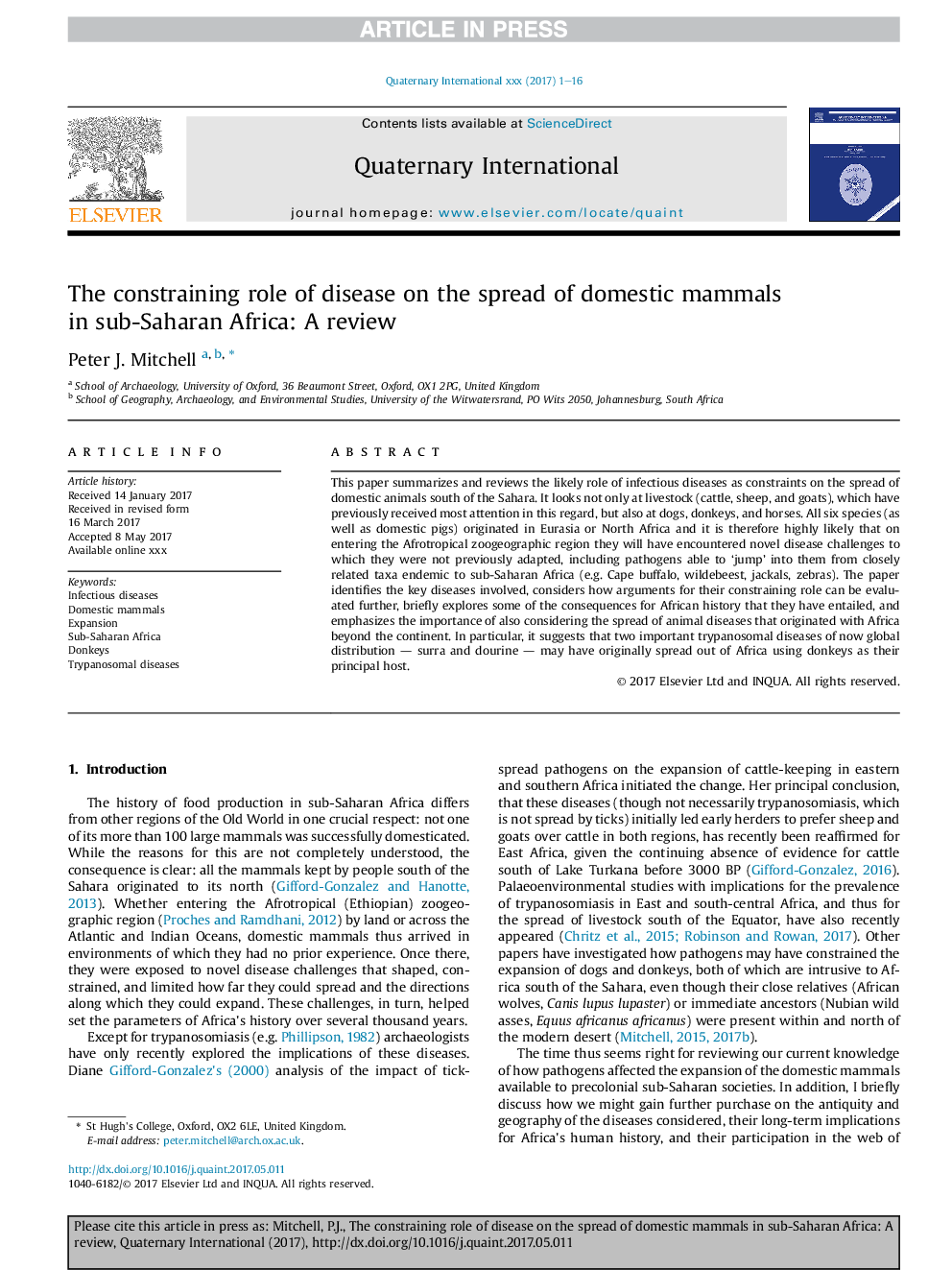| Article ID | Journal | Published Year | Pages | File Type |
|---|---|---|---|---|
| 7450082 | Quaternary International | 2018 | 16 Pages |
Abstract
This paper summarizes and reviews the likely role of infectious diseases as constraints on the spread of domestic animals south of the Sahara. It looks not only at livestock (cattle, sheep, and goats), which have previously received most attention in this regard, but also at dogs, donkeys, and horses. All six species (as well as domestic pigs) originated in Eurasia or North Africa and it is therefore highly likely that on entering the Afrotropical zoogeographic region they will have encountered novel disease challenges to which they were not previously adapted, including pathogens able to 'jump' into them from closely related taxa endemic to sub-Saharan Africa (e.g. Cape buffalo, wildebeest, jackals, zebras). The paper identifies the key diseases involved, considers how arguments for their constraining role can be evaluated further, briefly explores some of the consequences for African history that they have entailed, and emphasizes the importance of also considering the spread of animal diseases that originated with Africa beyond the continent. In particular, it suggests that two important trypanosomal diseases of now global distribution - surra and dourine - may have originally spread out of Africa using donkeys as their principal host.
Related Topics
Physical Sciences and Engineering
Earth and Planetary Sciences
Geology
Authors
Peter J. Mitchell,
